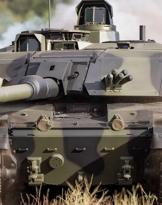The tests of the PCAS (Persistent Close Air Support) system designed by DARPA have been completed. The prototype, mounted on the long-lived A-10 Thunderbolt II, was tested at the Nellis air base in Nevada, where the 6th CTS operates. The 50 sorties successfully completed therefore make it a debut in the USAF.
During the tests, the system demonstrated how through a number less than three clicks on an Android tablet, a JTAC (Joint Terminal Attack Controller) in advanced position in the field can coordinate more quickly than in the past, and with greater precision, with the pilot support that brings the attack to the chosen target.
The PCAS program, using a technology compatible with all aircraft, furthermore allows to minimize collateral damage and friendly fire incidents: by sharing data in real time able to indicate multiple or moving targets, and communicating what kind of use ammunition to avoid an inadequate amount of fire for a better identified target.
Ten of the sorties, all successfully completed within the target deadline of 6 minutes, have involved the use of a combination of laser-guided and GPS armaments. Coordination took place through the PCAS-Ground software installed on a personalized tablet in connection with a PCAS-Air: an on-board pointing system.
Dan Patt, DARPA program manager, after showing the unpublished results of the project during the simulations, reiterated how close air support operations are based purely on teamwork and synchronization, and how the flexibility of this new system can be the key to significantly improve air-to-ground coordination on the battlefield.
The A-10, which will remain in active service in the USAF until they find a worthy successor, have used a version of PCAS-Ground software called ATAK (Android Tactical Assault Kit) developed by AFRL-RI in collaboration with the Special Operations Command (SOCOM). Similar tests with the PACS have been successfully completed by the Marine Corps using MV-22 Osprey convertiplane.
On the eve of the change of strategy that the Pentagon is preparing for the Syrian theater: the training of 500 JTAC units, the use of the PCAS could be considered providential.
(photo: DARPA / slider-Lockheed Martin)












